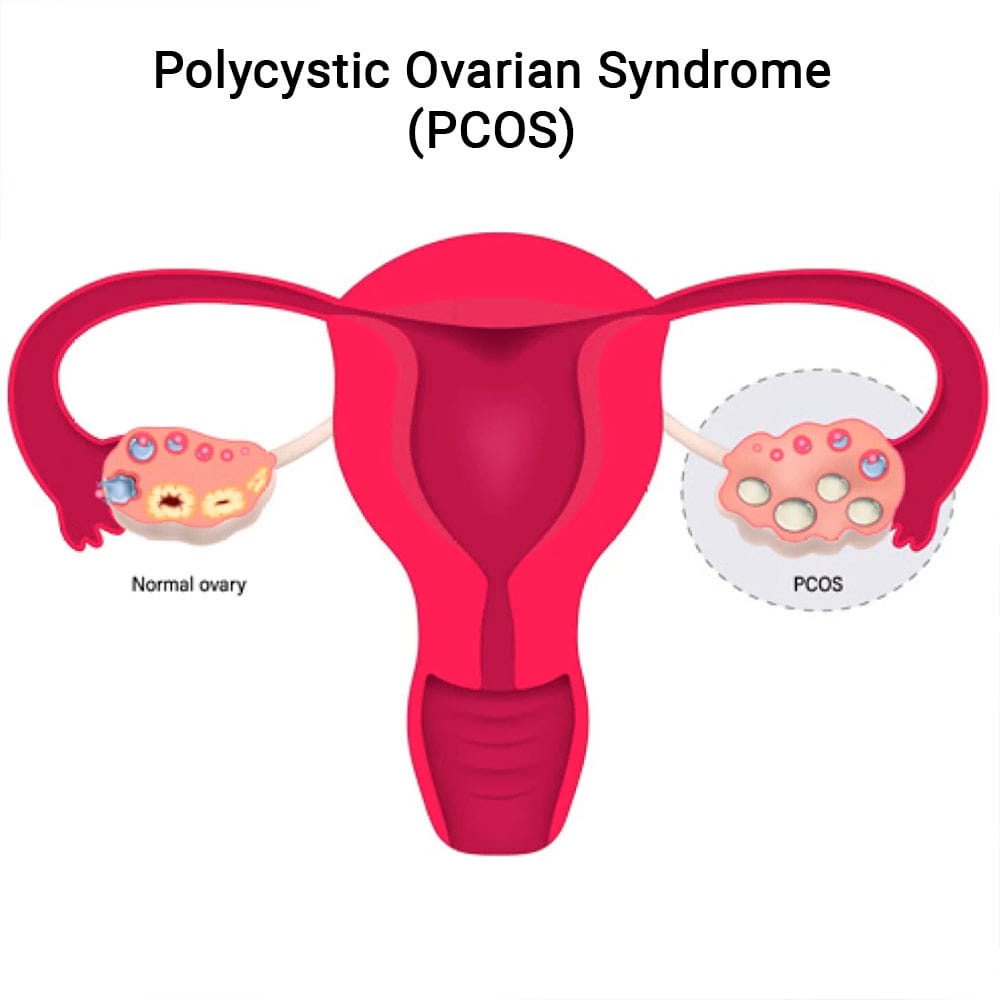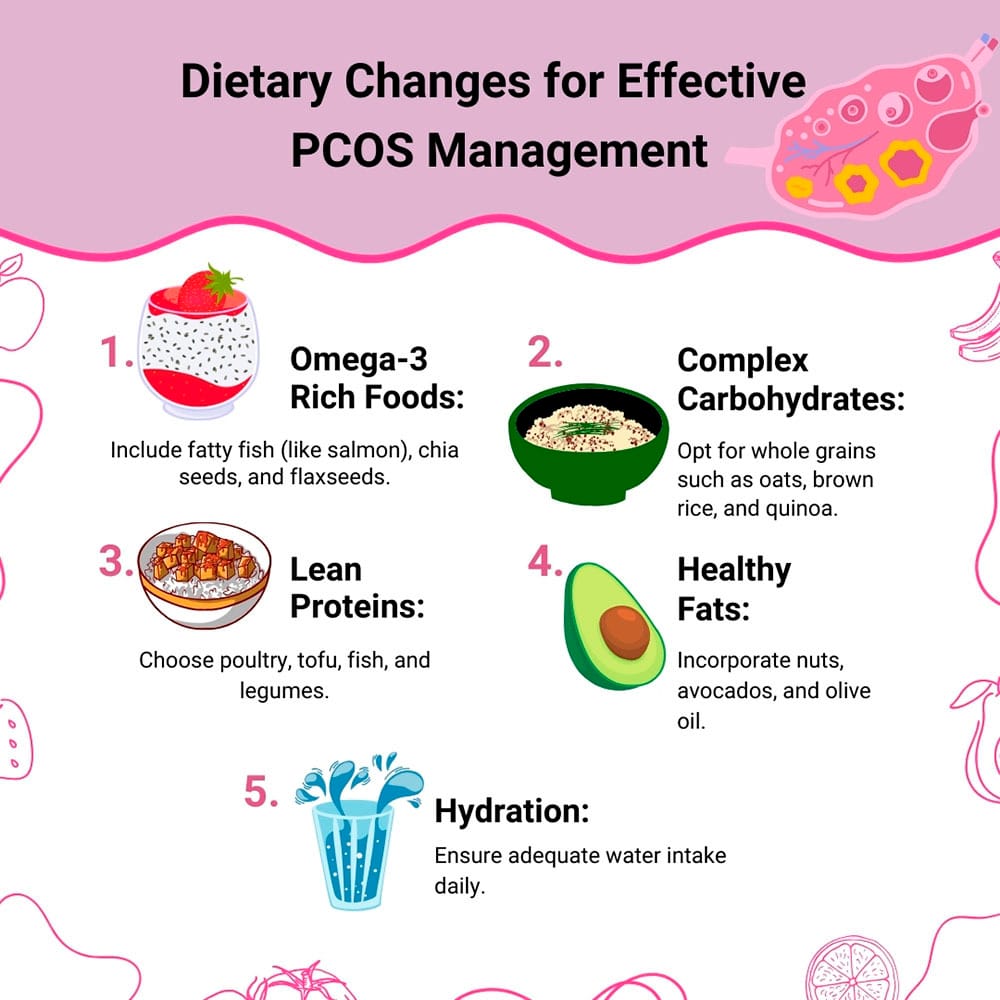What Is Polycystic Ovarian Syndrome?
 Polycystic ovarian syndrome (PCOS) is a condition that causes ovulation issues, hormonal imbalances and irregular periods in women. This condition has a remarkable impact on reproductive health and lifestyle with potential side effects that include difficulty conceiving and baldness. PCOS affects millions of women worldwide. The good news is that it’s a manageable condition with the right interventions.
Polycystic ovarian syndrome (PCOS) is a condition that causes ovulation issues, hormonal imbalances and irregular periods in women. This condition has a remarkable impact on reproductive health and lifestyle with potential side effects that include difficulty conceiving and baldness. PCOS affects millions of women worldwide. The good news is that it’s a manageable condition with the right interventions.
At Cohen Medical Practice (CMP) in Midtown New York City, you’ll find a team that understands PCOS and is committed to providing effective solutions. These experienced gynecologists and surgeons, led by Dr. Felix Cohen, have helped thousands of women overcome a wide range of reproductive health issues and achieve optimal well-being. They provide a full range of gynecological services, from premenstrual syndrome to effective birth control.
What Are the Main Symptoms of PCOS?
PCOS symptoms vary from person to person. It’s also challenging to diagnose because its symptoms might also appear in other hormonal imbalance conditions such as other thyroid and adrenal disorders.
As such, it’s crucial to receive a proper diagnosis from a qualified gynecologist at CMP.
Some of the differentiating symptoms of PCOS include:
- Absence of periods or irregular periods
- PCOS weight gain
- Acne
- Thinning hair and male pattern baldness
- Excessive hair growth
- Ovarian cysts
- Insulin resistance and type 2 diabetes
How Does PCOS Relate to Enlarged Ovaries?
It’s common for women with PCOS to also have enlarged ovaries. This is because the ovaries develop multiple growths that cause them to enlarge. Hormonal imbalances, with high levels of androgens, is one the major factors in this development.
A diagnostic test will most likely reveal ovarian tumors or cysts. Very often, it’s these co-occurring conditions that lead your doctor to look for signs of polycystic ovarian syndrome.
Other common symptoms of enlarged ovaries include:
- Chronic pelvic pain and discomfort
- Heavy and abnormal uterine bleeding
- Twisting of the ovary
- Difficulty in conceiving
- High levels of male hormones
Can I Get Pregnant with PCOS?
While it’s possible to get pregnant with PCOS, it can be a difficult and challenging journey. PCOS causes irregular ovulation or total ovulation failure, called anovulation. It also causes hormonal imbalances, making it difficult to achieve the optimal environment for fertilization and pregnancy. However, the right PCOS and pregnancy interventions have helped women achieve and carry successful pregnancies.
Some of the interventions available at CMP New York include:
- Ovulation induction medication
- Artificial insemination and other assisted reproductive technologies
- Fertility support and counseling
- Insulin sensitivity improvement
- Weight management programs
- Polycystic ovarian syndrome diet advice
Why Is PCOS Making Me Gain Weight?
PCOS weight gain is linked to insulin resistance and hormonal imbalance. Insulin resistance causes high blood sugar levels and high conversions of this sugar to fat. PCOS symptoms also have a spiral effect, making you lethargic and averse to physical exercise, which encourages accelerated weight gain.
Doctors at CMP New York advocate for a combination of lifestyle and dietary changes to manage this weight gain.
Your doctor advises you to develop positive and healthy PCOS weight loss habits, including:
- Eating a polycystic ovarian syndrome diet with whole foods, fruits and vegetables
- Avoiding processed foods, especially those with added sugar
- Getting regular exercise featuring cardio and strength training
- Sleeping sufficiently
- Developing stress management techniques, such as meditation
Why Am I Losing Hair?
PCOS hair loss is also linked to hormonal imbalances, especially high levels of androgens. Excessive androgens cause hair follicle shrinkage that eventually die off, leading to thinning hair and baldness. This is exacerbated by insulin resistance, which causes inflammation of the scalp and more hair loss.
Your Midtown New York gynecologist offers several hair loss management interventions for women with PCOS.
This combination might include:
- Anti-androgen medications, such as finasteride and minoxidil
- Hormonal balancing therapies
- Hair stimulation therapies, such as low-level laser therapy and photobiomodulation
- Dietary changes that include a higher intake of Omega-3 fatty acids
Is PCOS Linked to Diabetes?
PCOS and diabetes are correlated, meaning you’re at a higher risk of developing type 2 diabetes if you have PCOS. The underlying cause is insulin resistance, which causes high blood sugar levels and the onset of type 2 diabetes. The accelerated weight gain also adds to the risk of getting diabetes.
It’s vital that you learn how to monitor your sugar levels if you have PCOS.
This awareness helps in different ways, including:
- Early identification of insulin resistance and type 2 diabetes
- Early interventions with proper medication for improving insulin sensitivity
- Proper adjustments of lifestyle and dietary habits
- Regular checkups to identify other underlying causes and complications of insulin resistance and high blood sugar levels
What Changes Can I Make to My Diet for PCOS Management?
It’s crucial to change your diet to make it more wholesome and balanced. A polycystic ovarian syndrome diet is a useful non-drug intervention for PCOS. It helps with weight gain management, PCOS weight loss and maintaining optimal blood sugar levels.
Your doctor formulates a personalized diet plan that considers your health and lifestyle needs.
Some of the recommendations for a polycystic ovarian syndrome diet include:
- Omega-3 rich foods like fatty fish, chia and flaxseed
- Complex carbs in whole grains
- Lean protein foods such as poultry, tofu and fish
- Healthy fats in nuts, avocados and olive oils
- Optimal hydration with intake of recommended water quantities each day

The team at CMP is committed to providing workable and effective solutions for gynecological problems including PCOS. Don’t let PCOS hold you back from attaining your optimum health goals. Contact Cohen Medical Practice (CMP) today to start your journey in effective PCOS management.

